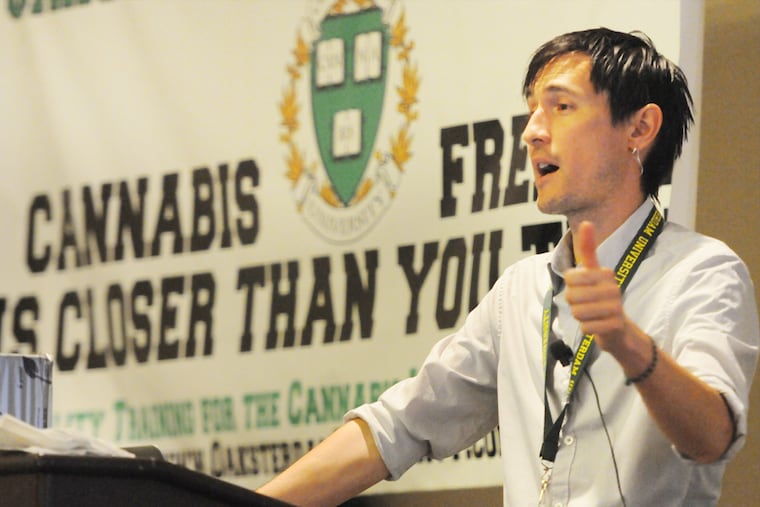Commonwealth should follow Philly's lead on pot
It took some time before Mayor Nutter's administration and City Councilman James Kenney finally reached a compromise on a bill that would decriminalize marijuana possession.

It took some time before Mayor Nutter's administration and City Councilman James Kenney finally reached a compromise on a bill that would decriminalize marijuana possession.
The main compromise in the deal was to create a separate offense - and penalty - for public use of the drug. The agreement was reached with the understanding that, while marijuana possession would no longer be a criminal offense, its use remains an unacceptable behavior.
Thus, Philadelphia took a step in the right direction and the Commonwealth of Pennsylvania - where marijuana possession remains a criminal offense - should follow the city's lead.
Economists have long argued that the costs of the war on drugs far exceed its benefits. There are estimates that the war has cost taxpayers more than $40 billion a year, but that amount doesn't account for the many additional burdens that are difficult to measure.
Criminalization of drug possession, including marijuana, leads drug consumers to spend time in jail and, upon release, they face fewer opportunities for legal employment because of their criminal record. Some go on to become drug traffickers themselves, or pursue other criminal activities not only to finance their drug addiction, but also to support themselves and their families.
As a result, it's not surprising that the total number of persons incarcerated in state and federal prisons in the United States has grown from 330,000 in 1980 to 1.6 billion in 2013. The costs of housing them have increased as well.
Finally, the drug war has led police forces to shift their efforts and resources toward attempting to pursue these drug offenders instead of trying to stop violent criminals, though there's likely some overlap. Since 2002, the number of arrests for marijuana possession has exceeded the number of arrests for violent crimes.
There is little doubt that Philadelphia's decriminalization of marijuana possession would bring some of the benefits that have been observed by Portugal since it decriminalized all drugs in 2001.
Decriminalizing possession will reduce the likelihood that these low-level drug offenders will turn to criminal activities to finance their addiction or support themselves. More importantly, it will allow law-enforcement resources dedicated to pursuing marijuana consumers to be reallocated toward more important objectives, such as preventing violent crimes.
However, while drug possession remains a crime in Pennsylvania, the effects of decriminalizing marijuana possession in a major metropolitan area, while not negligible, will remain small overall. The benefits of decriminalizing marijuana possession would be much larger if the commonwealth followed the model established by Philadelphia.
We shouldn't forget that, while some resources are allotted toward fighting drug consumption, including marijuana use, resources aimed at enforcing drug laws are mostly directed toward fighting traffickers who produce and sell drugs. If we want to reduce the costs associated with the war against drug traffickers, decriminalizing marijuana should be done on both sides of the market. Such a move would lower the crime rate associated with producing and selling drugs, greatly reduce the number of state and federal prisoners, as well as the harmful effects on drug offenders who spend years in prison, and save taxpayers money.